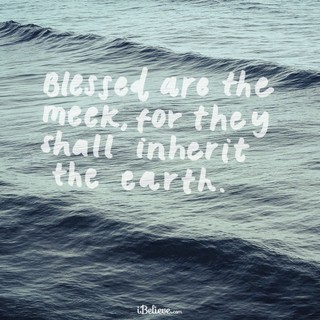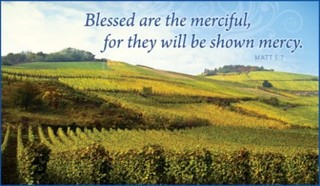
- Recent Translations
- All Translations
Matteo 5:20
Share
Settings
Matteo 5:20 Meaning and Commentary
For I say unto you
These words are directed, not to the true disciples of Christ in general, or to his apostles in particular, but to the whole multitude of the people; who had in great esteem and admiration the Scribes and Pharisees, for their seeming righteousness and holiness; concerning which Christ says,
that except your righteousness exceed the righteousness of the
Scribes and Pharisees, ye shall in no wise enter into the kingdom of
heaven.
He mentions the Scribes, because they were the more learned part of the people, who were employed in writing out, and expounding the law; and the Pharisees, because they were the strictest sect among the Jews for outward religion and righteousness; and yet, it seems, their righteousness was very defective; it lay only in an external observance of the law; did not arise from a purified heart, or the principles of grace; nor was it performed sincerely, and with a view to the glory of God; but for their own applause, and in order to obtain eternal life: besides, they neglected the weightier matters of the law, and contented themselves with the lesser ones; and as they were deficient in their practice, so they were very lax in their doctrines, as appears from the foregoing verse. Wherefore Christ informs his hearers, that they must have a better righteousness than these men had, if ever they expected to enter into the kingdom of heaven. There will be no admission into heaven without a righteousness: it was the loss of righteousness which removed Adam out of his earthly paradise; and it is not agreeable to the justice of God, to admit man into his heavenly paradise without one; yea, it is contrary to his nature, and would be destructive to the comfort of saints, to receive an unrighteous person into his kingdom and glory. A "pharisaical" righteousness will never bring a person thither; nor will any righteousness of man's, be it what it will, because the best is imperfect; it must be a righteousness exceeding that of the Scribes and Pharisees; and such is the righteousness of the saints: indeed their inherent righteousness, or the sanctification of the Spirit, is preferable to any righteousness of a natural man; it exceeds it in its author, nature, effects, and usefulness; yea, even works of righteousness done by believers are greatly preferable to any done by such men as are here mentioned: but, above all, the righteousness of Christ, which is imputed to them, and received by faith, is infinitely more excellent in its author, perfection, purity, and use; and which is their only right and title to eternal glory; and without which no man will be admitted into that glorious state.

